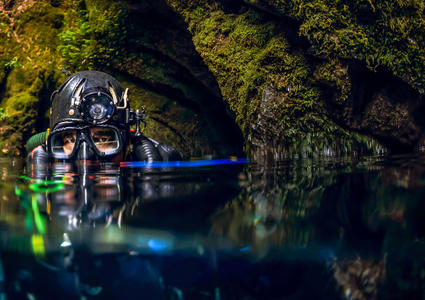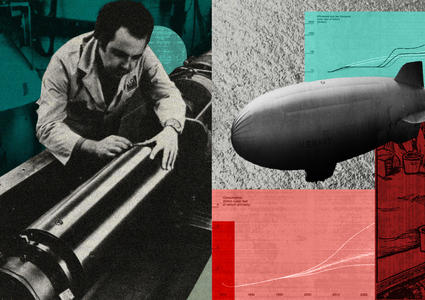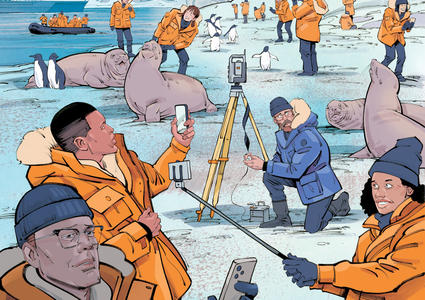Nanoparticles from residues used to turn biomass into bioplastics and biofuels.
“Society sees residues like a problem instead of a rich and important source to obtain high value products”, states Rafael Luque, a young chemist and Spanish entrepreneur who is fighting to change this mentality.
Luque is an expert in the use of nanotechnology to obtain valuable chemicals and biofuels from organic matter. At 34 years of age, he has discovered and marketed a family of versatile, porous materials that act as chemical reaction catalysts that work to transform biomass. Thanks to those, he transforms agricultural and forest residues or waste from the food industry in what it is known as bio-platform chemicals, ‘chemical blocks’ that can be used to manufacture bioplastics, biofuels, and intermediary compounds for pharmacy and cosmetics, among other applications.
The TR35 winner began his education at the University of Córdoba where he was granted his bachelor’s degree and began his doctorate, but discovered these new materials during his post-doctorate at York University (United Kingdom), while working on a financial project financed by the Engineering and Physical Sciences Research Council (EPSRC). The objective was to maximize the production of chemicals of high added value, like esters and amides. “The industry uses them to prepare polyesters and polyamides that are used, for example, in textile fibers”, he explains.
The family of porous materials that he discovered there was called Starborn and registered under two international patents of which Luque is the first author. Currently it is marketed through the multinational catalog of Sigma Aldrich and is used as a base to manufacture different catalysts that are adapted to specific necessities of each industrial process, in order to manufacture chemicals and biofuels. “Each process requires a different catalyst depending on the final desired product and this is achieved by ‘functionalizing’ the Starborn, adding distinct groups (acids or bases, for example) to carry out the required reaction”, continues the young innovator.
The nanomaterials patented by Luque are cheaper and more competitive than others that are usually used to process biomass. For example, they are much more efficient than acid resins in catalytic processes, than porous carbons in separation of substances, and than active carbons in adsorption (retention of molecules).
Furthermore, these catalysts not only maximize the transformation performance but also, compared to its competitors, are less harmful to the environment. This is due, primarily, to the fact that they can be manufactured from residues. “They can be obtained from any polysaccharide, for example, from spoiled bread”, explains Luque. “We obtain, in an ecological way, a product of high added value that we can sell”, he adds.
On the other hand, the manufacturing methodologies used to create these nanomaterials are also environmentally better than its competitors. “We use techniques involving microwaves and grinding techniques”, explains Luque. “To simply obtain the nanoparticles we put the Starborn material in a microwave with a metallic precursor (iron, platinum or palladium salts), or they can be manufactured by crushing the base material with the precursor in a mill”, explains the TR35 winner.
To cover each step, from the creation of these materials to the generation of chemicals and biofuels, Luque has founded Green Applied Solutions (GAS), a firm that not only develops the catalysts but also manufactures final products, like for example, biodiesel. “We are negotiating with a couple of companies both Spanish and foreign to market it”, states the entrepreneur.
In addition to GAS, that has been created recently and also focuses on environmental consulting and R&D in materials and renewable energies, the TR35 winner cofounded the firm Starborn Technologies in 2011, in association with York University. According to Luque, this company has reached an agreement with Carbon Trust, a consultancy group centered on carbon reduction and resource efficiency, as well as with “various large businesses” to which Starborn would provide catalysts and products derived from Starborn.
In the upcoming years, Luque assures that GAS will focus on the development of processes to value food residues. “We will use both oleaginous residues for the production of biodiesels and other biofuels such as other types used for the creation of fertilizers, feed, and other interesting products”, explains the entrepreneur.
In Jorge Welti’s opinion, the Postgraduate Director of the Biotechnology and Nutrition at ITES in Monterrey (Mexico), and a member of the TR35 Spain Awards’ jury, the scientific work and innovation of Luque “is of great relevance and high impact” in fields with prevalent potential like the creation of biofuels or the development of technologies to obtain products with low environmental impact. In addition, Welti points out that the TR35 winner “has managed to intelligently create patents that are being exploited right now”. - Translated by Alfredo Corral


